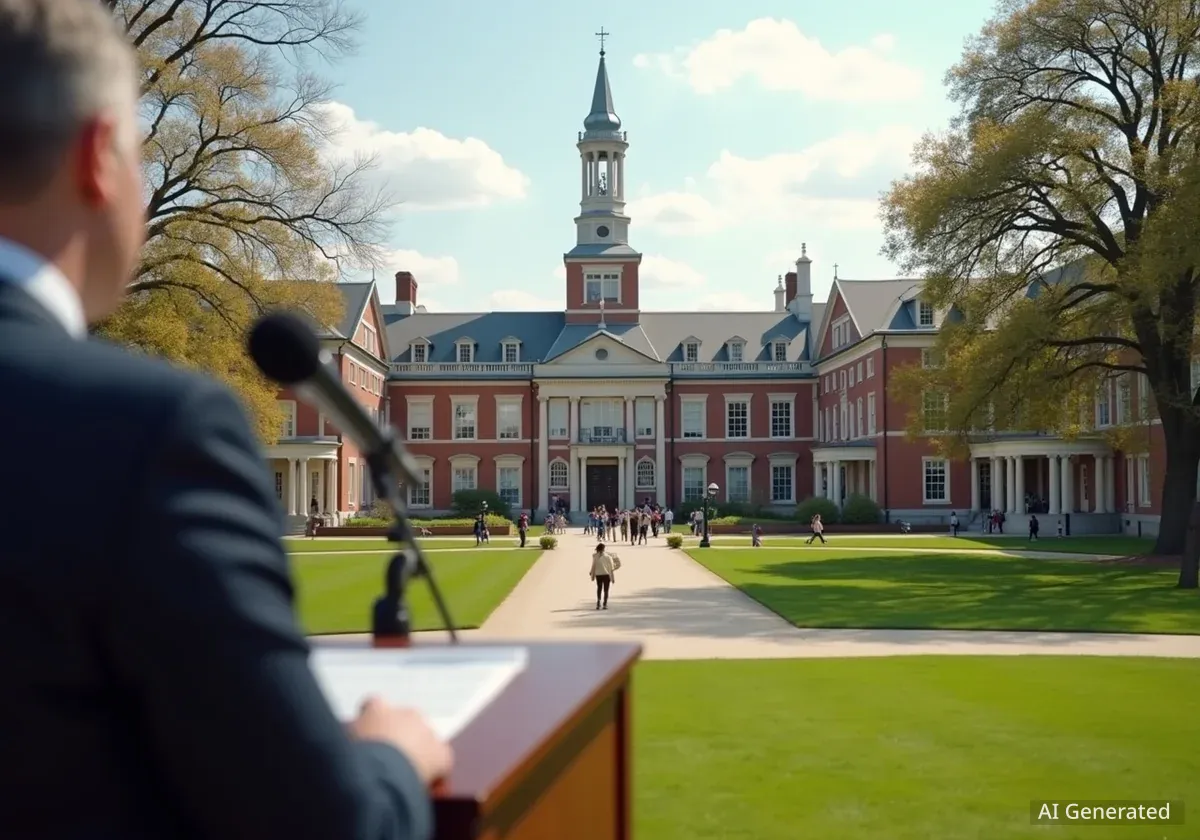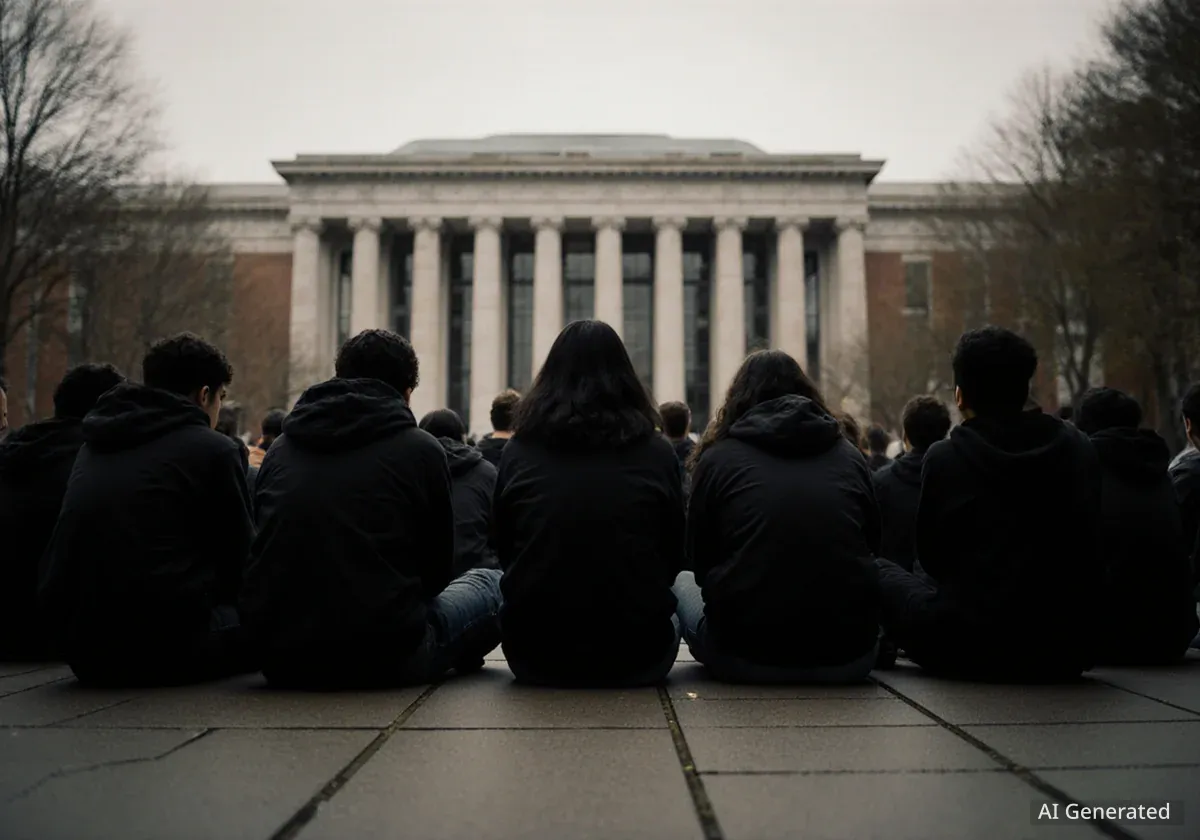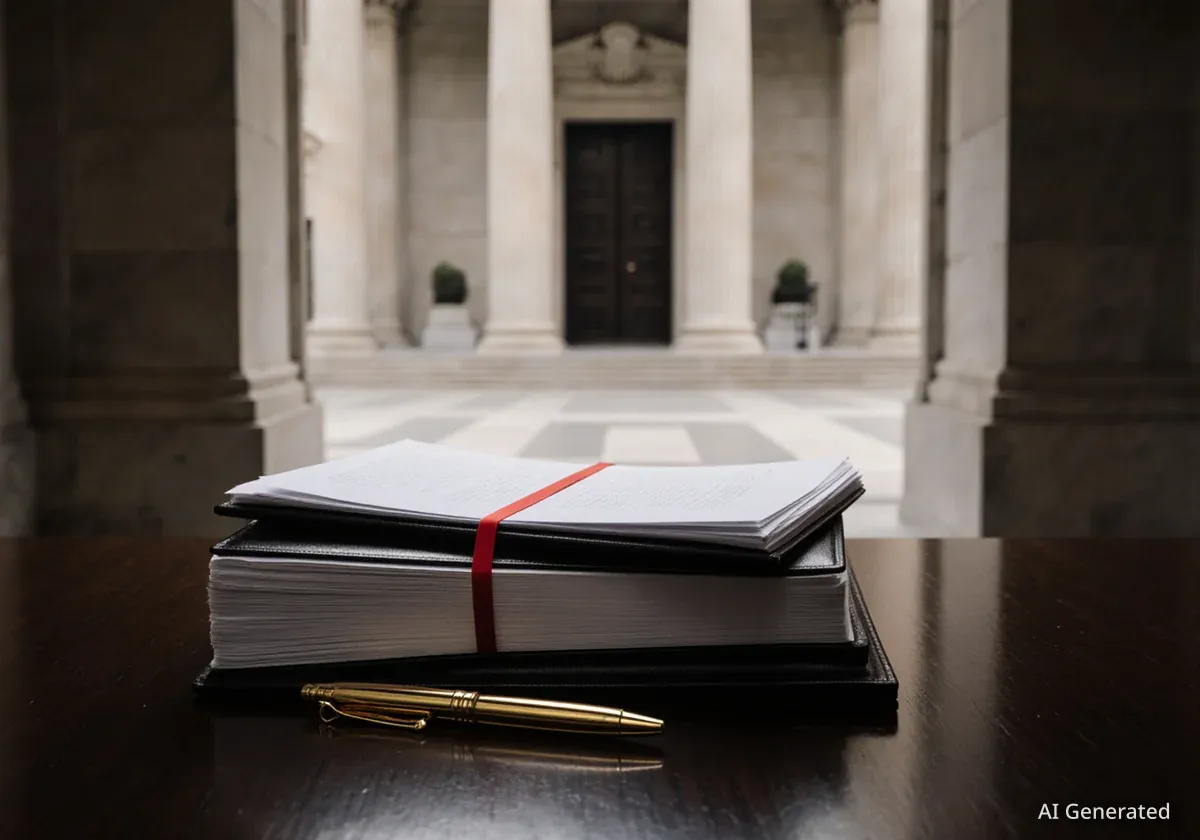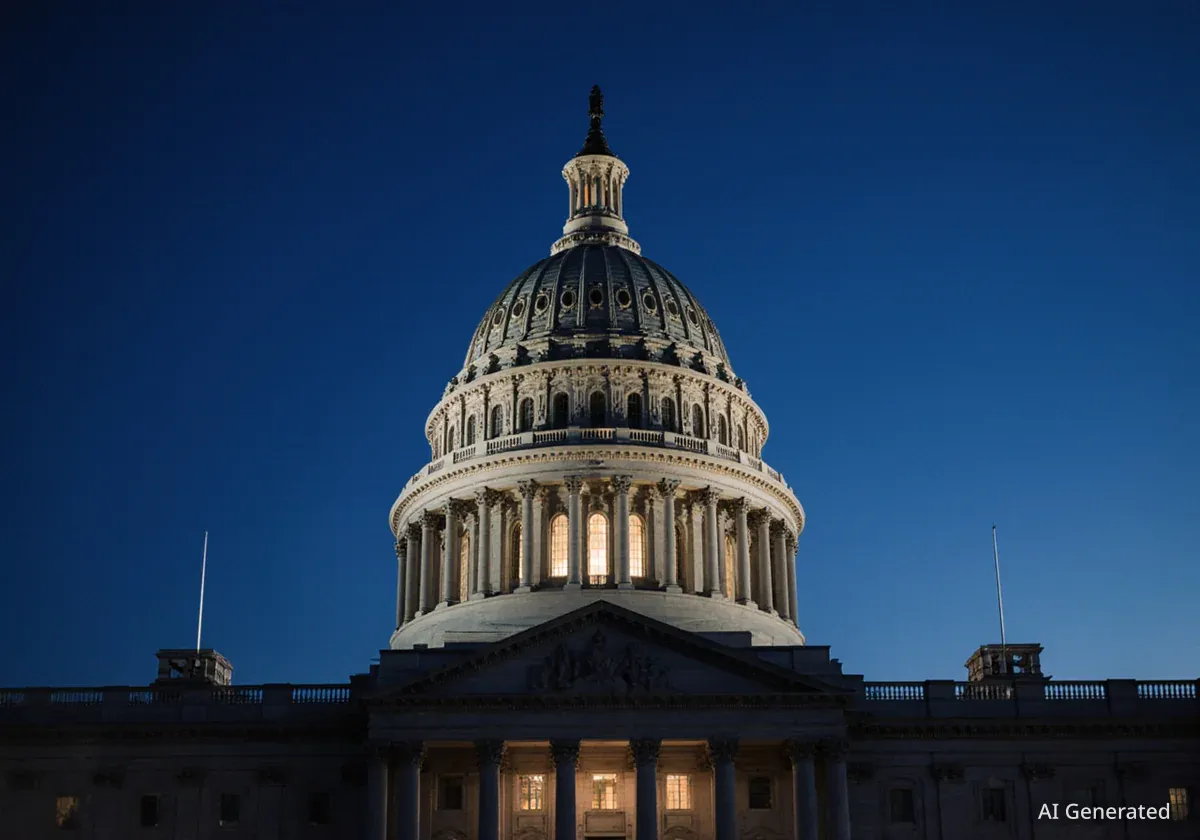Faculty members at the University of Virginia (UVA) have overwhelmingly rejected a White House proposal that they believe threatens academic freedom and free speech within higher education. The controversial document, known as the “Compact for Academic Excellence in Higher Education,” outlines specific positions on university operations, which faculty found unacceptable.
The vote, held this week, showed a significant majority of UVA faculty opposing the compact. This decision reinforces the university's commitment to its long-standing principles of institutional independence and free inquiry.
Key Takeaways
- 97% of UVA faculty voted against the White House's "Compact for Academic Excellence in Higher Education."
- The compact proposed federal grants in exchange for universities adopting specific stances on admissions, free speech, and women’s sports.
- Faculty members and the AAUP view the proposal as a threat to academic independence and potential federal interference.
- UVA's interim president has established a working group to determine the university's official response by the November 21 deadline.
Faculty Stand Against Federal Intervention
The University of Virginia faculty delivered a clear message this week. An impressive 97% of faculty members voted against endorsing the “Compact for Academic Excellence in Higher Education.” This 10-page proposal, disseminated by the White House, sought to influence university policies across several key areas.
The compact was sent to UVA and eight other prominent universities nationwide. It called for these institutions to align with specific White House positions on critical issues. These issues included university admissions criteria, policies related to free speech on campus, and guidelines concerning women's sports programs.
Proposal Details
The "Compact for Academic Excellence in Higher Education" offered universities priority access to certain federal grants. In return, institutions would be expected to adopt the White House's defined positions on admissions, free speech, and women's sports. The proposal was sent to nine major universities, including UVA.
In exchange for adopting these positions, universities would gain priority access to specific federal grants. However, the faculty at UVA viewed this offer as a direct challenge to their autonomy. Their strong opposition follows a similar resolution from the UVA Faculty Senate, which also opposed the compact.
Threat to Academic Independence
Walter Heinecke, immediate past president of UVA’s chapter of the American Association of University Professors (AAUP), strongly criticized the proposal. He described it as a tactic to exert undue influence over educational institutions.
“Our organization sees this as a complete sham,” Heinecke stated. “It’s just an effort to further engage in extortion against universities around the country.”
Heinecke emphasized that faculty members perceive the compact as a fundamental threat to the independence of higher education. This independence is considered essential for critical inquiry and open discourse.
“We just can’t have that,” Heinecke added. “It’s just not what we do as universities.” The AAUP, a national organization dedicated to protecting professors' academic freedom, has urged universities nationwide to reject the compact without negotiation.
The Role of AAUP
The American Association of University Professors (AAUP) is a non-profit organization that champions academic freedom and shared governance in higher education. Founded in 1915, it sets standards and principles for the profession, advocating for the rights and responsibilities of faculty members across the United States. The AAUP views external political interference in university affairs as a serious threat to the integrity of academic institutions.
Concerns Over Federal Surveillance
Heinecke warned about the potential long-term consequences if universities were to accept the terms of the compact. He suggested that such an agreement could lead to increased federal oversight and interference in university governance. This could undermine the traditional model of academic self-regulation.
“This is all going to lead to, you know, sort of control and micromanaging and surveillance, and monitoring by the DOJ, if any university that’s been offered this compact signs off on it,” Heinecke explained. This concern highlights fears of government agencies, such as the Department of Justice (DOJ), potentially dictating academic decisions.
Such surveillance could impact curriculum development, research priorities, and even hiring practices. The faculty's vote reflects a deep concern about preserving the intellectual integrity and autonomy of the university.
UVA Leadership Responds to Proposal
In response to the White House proposal, UVA’s interim president has established a working group. This group is tasked with thoroughly reviewing the compact and formulating the university's official response. The university has a deadline of November 21 to respond to the White House.
In a message to its community, UVA acknowledged the challenges posed by the compact. The university stated that it would be “difficult to agree to certain provisions” of the compact. This indicates a strong alignment between the administration's preliminary assessment and the faculty's decisive vote.
The university's leadership affirmed that its ultimate response will be guided by UVA’s enduring commitment to academic freedom. This principle is a cornerstone of the institution's mission and identity.
Call for Firm Rejection
Walter Heinecke urged UVA’s leadership to maintain a firm stance against the compact. He advised against any attempts to negotiate or propose revisions to the document. His recommendation emphasizes a complete and unequivocal rejection.
“We encourage governing boards and presidents, at the University of Virginia especially, to reject this offer… to do absolutely nothing, to not accept it, to not negotiate about it, to not provide proposed revisions,” Heinecke asserted.
This strong recommendation underscores the belief that even engaging in negotiations could legitimize the compact's premise. A total rejection would send a clear message about the value of academic independence.
The specific criteria used to select the nine universities to receive the compact remain undisclosed. This lack of transparency has added to the concerns regarding the proposal's intent and implications.
Key Dates
- October 2025: UVA faculty vote against the compact.
- November 21, 2025: Deadline for universities to respond to the White House proposal.
The decision by UVA faculty is a significant development in the ongoing national discussion about the relationship between government and higher education. It highlights the deeply held values of academic freedom and institutional autonomy that universities strive to protect.
Universities across the nation are watching how institutions respond to similar proposals. UVA's rejection sets a precedent for how other universities might address external pressures seeking to influence their core academic and administrative functions. The coming weeks will reveal the broader impact of this decision on the landscape of higher education.





